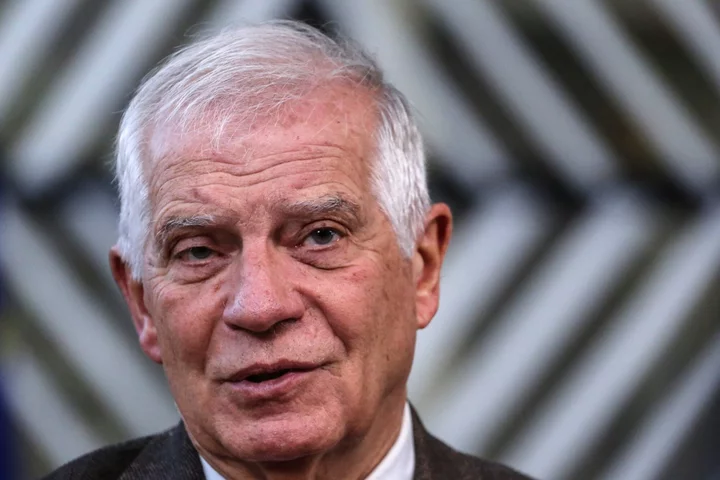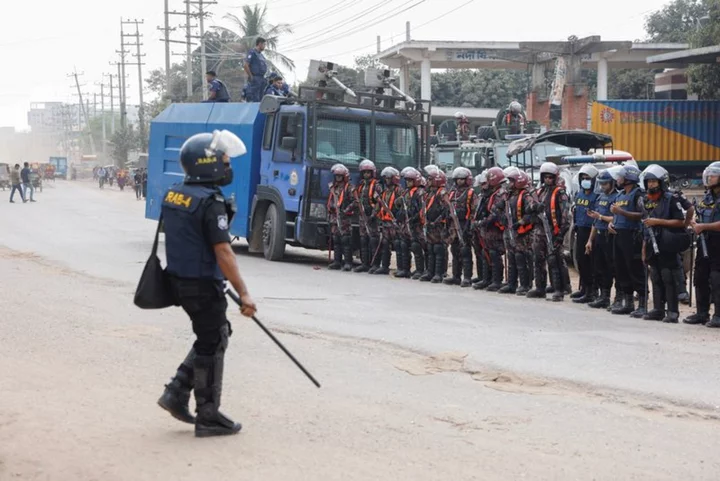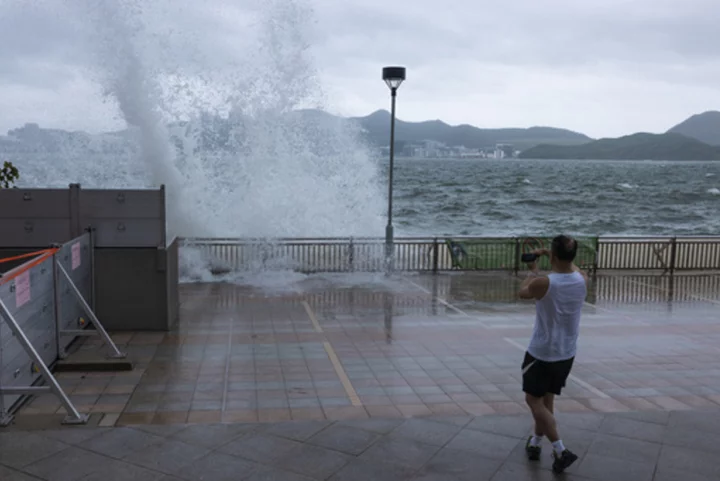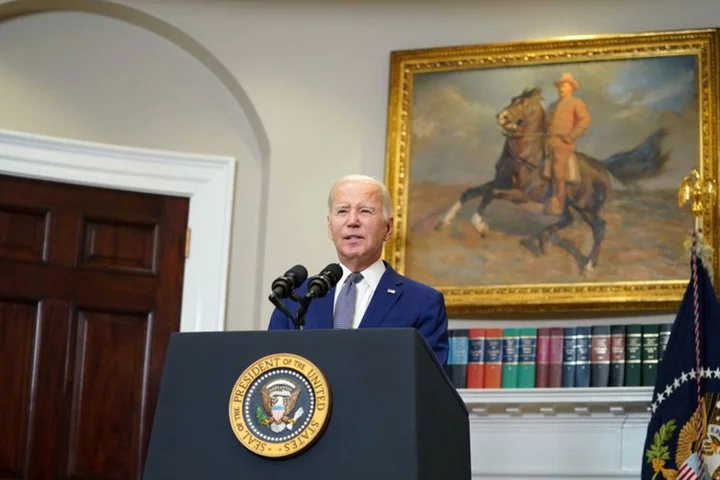The European Union should avoid being drawn into a zero-sum contest between Washington and Beijing as it works to manage China’s rise, according to a draft paper by the bloc’s foreign policy arm.
The bloc has been struggling to get on the same page on how to approach China, with some countries beginning to push for more strategic distance, including new limits on exports of technology to Beijing.
“Coordination with the United States will remain essential” for both clear-eyed engagement with China and management of the risk the country poses, said the document obtained by Bloomberg. “However, the EU should not subscribe to an idea of a zero-sum game whereby there can only be one winner, in a binary contest between the US and China.”
The paper, prepared by EU foreign policy chief Josep Borrell and the bloc’s external affairs service for a meeting of foreign ministers on Friday, tacitly echoes recent comments by French President Emmanuel Macron that the bloc shouldn’t become a “vassal” in a US-China clash. His remarks, following a visit to Beijing last month, sparked outrage in several European capitals.
Group of Seven nations are aiming to send a signal to China this month by announcing a joint effort to counter “economic coercion” but are struggling to agree on tangible measures. China will also be a key topic when EU leaders hold a summit in Brussels at the end of June.
European officials, including Commission President Ursula von der Leyen, have increasingly spoken about “de-risking” — but not “de-coupling” — the bloc’s relations with China. German Chancellor Olaf Scholz echoed the same sentiment this week, while Italy has signaled to the US that it intends to pull out of a controversial investment pact with China before the end of the year.
Concern about the impact of potential Chinese activity in Taiwan —- as well the prospect of provocative steps by the US to defend the island — have only heightened concerns. The EU has a “fundamental interest to engage China - and the US - in maintaining the status quo and de-escalating tensions” in the Taiwan Strait, according to the bloc’s new paper.
Still, the EU paper also reaffirms the bloc’s strategy of dealing with China simultaneously as a partner, a competitor and a systemic rival, but said the balance of those approaches will be conditional on how China responds to Europe’s engagement.
China’s relationship with the EU will be “critically affected” if Beijing does not push Russia to withdraw from Ukraine, the document says, adding that “setting the conditions for a just peace” should define how the EU engages China on Russia’s war. France’s Macron has also tasked a senior official to jointly start work with his Chinese counterpart on a framework that could be used for future peace talks, although some member states complained about his suggestion that Xi Jinping could play a major role in ending the war in Ukraine.
China Targeted in New G-7 Push Against ‘Economic Coercion’
Borrell’s paper argues that the EU needs to step up its efforts to engage with other countries with more attractive proposals to compete with China’s growing influence, including through free-trade agreements and energy partnerships.
It also calls for Europe to continue engaging with China as it works to level the economic playing field and reduce its dependencies in areas like critical minerals. It warns that the EU must be ready to counter any effects of China’s actions in its societies.
“Our openness cannot be allowed to become a vulnerability, but nor should it be dismantled,” the paper warns.
EU Needs to Watch How China Manages Its Influence, Borrell Says
In remarks on Thursday, Borrell said the EU shouldn’t waste time trying to prevent China from becoming a world power but that the bloc should focus on how it uses its rising might.
“If it uses this power in accordance with international law, if it doesn’t put in danger our interests and values, we have to live with China on the world stage,” he said at the European Defence and Security Summit in Brussels.
--With assistance from Maria Tadeo.
(Updates throughout with details from paper, context)









